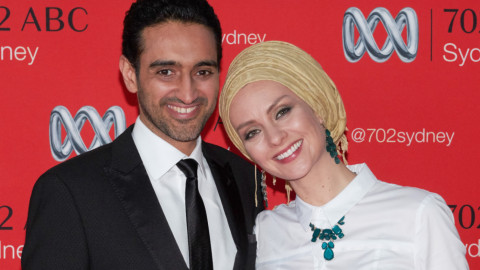
Waleed Aly gave a compassionate plea to remove the social stigma from autism, especially for children living with the disability.
The Projecthost gave an interview with Hit Network's Carrie & Tommy on Thursday, where he shared how he and wife Susan Carland are raising their nine-year-old son Zayd, who is autistic. Zayd was diagnosed as being on the autism spectrum in 2011.
"For us it showed up in his unbelievable obsession with trains. It showed up in early years when we would tell him off and he would look at us blankly like, 'Why are you making these noises?' He wouldn’t pick up the social cues," said Waleed.
When he learned his son's diagnosis, things began to fall into place, he said.
"I actually thought, 'Oh great, the world makes sense now'. And now we know exactly what to do, we can handle this. And he's thriving, he’s coping really well. But I can imagine for other parents it wouldn’t be like that at all. Because when you have a diagnosis, what that triggers in a lot of people’s minds is this is lifelong and I suppose it kind of is."
The TV presenter and lawyer spoke out in light of Pauline Hanson's comments this week that children with disabilities, particularly those on the autistic spectrum, should be separated out of normal classrooms. The One Nation Senator argued that teachers are forced to spend too much time working with children with disabilities and that there were not enough "special classrooms" to accommodate them.
Waleed rebuked the politician's controversial statements, specifically that separating students with disabilities from their peers would be of benefit to teachers.
"One of the problems with autism – and one of the problems with what Pauline Hanson said about it yesterday – it's not that it's never true that it can be really difficult for teachers. But it's that the experience of autism is so diverse that you can't possibly categorise it in this way."
He continued, "There are very easy fixes for a lot of these sorts of things. It's when you lump everyone together and try to turn everything into a problem that is to be solved somehow or quarantined from things that are not a problem, that's when I think life starts to get difficult for people.
He also clarified that the experience of autism is highly individualized, so there is no one-size-fits-all approach to navigating it.
"There's this saying that goes around among people who either have children with autism or are experts in the area and they say: 'If you know one person with autism, then you know one person with autism'. It's incredibly diverse."